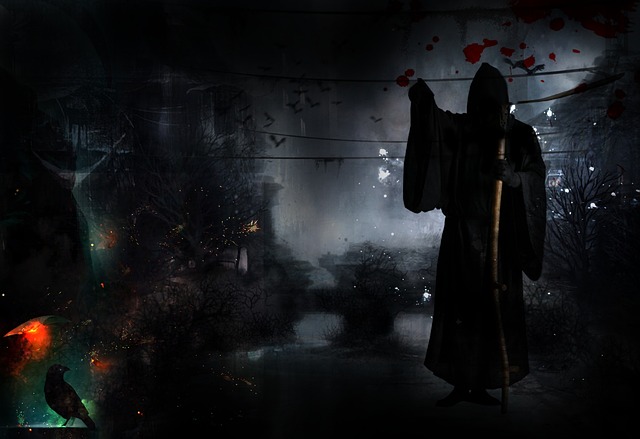
Oselumhense Anetor
I think part of the problem we have today is acting like we are smarter than demons. Fact is, we aren’t. Demons are fallen angels; they are preternatural intelligent beings, not bound by space and time, but with the ability to make accurate guesses about us, our thoughts and our world.
Many ministries of so-called men and women of God are fully under the control of demons. These demons carefully work in sync with those who tell lies in their prophecies, thereby deceiving God’s people; in those who set up ministries and fellowships for financial gains; and those who do not truly seek God’s face but prefer magical displays of evil powers under the guise of miracles, signs, and wonders.
Satan is not called DECEIVER OF THE WHOLE WORLD for nothing (cf.Rev.12:7-9). Hence those who delve into the spiritual realm must do so armed with the Armour of God (cf.Eph.6:11-18). In carrying out exorcisms or prayers of deliverance, the aim must never be to show how powerful the minister is (this in itself can be a temptation) but to genuinely seek God’s help for the person(s) under demonic possession, oppression, affliction, through the instrument of faith.
Demons, being themselves intelligent beings, possess personalities. They may be clausus (shut) or apertus (open). Under prayer, the shut demon mostly would cause the possessed person to fall into a trance, closing his eyes and rolling them back under the eyelids. But if the demon is open, he does the opposite. He opens the person’s eyes and gives rational explanations on why he isn’t possessed. Then he begins to ridicule the entire process, laughing unnecessarily, and apologizing at the same time.
But again, there are hidden demons known as the abditi. These are perhaps the most difficult ones to deal with. If you have ever had situations where it seemed like your life has been totally taken over by forces you can’t control, you may be under the influence of the abditi. In this situation, prayer life goes down the drain, and an overwhelming sense of disinterestedness fills the heart, especially with regards to spiritual exercises. This can happen to the best of people.
What is recommended in every instance is to be faithful to God’s word and the Sacraments. Daily masses, praying the rosary often and regular confessions are highly recommended. This is because one sacramental confession is far more powerful than a hundred exorcisms. But we have men and women of God today who continue to pray for people without opening themselves up to God’s grace. They have developed a ‘god complex’, thinking they are able to heal people because of their own holiness. They live lives contrary to God’s word and make no attempts to be reconciled to God in the Sacrament of confession.
Demons are smart. Yes! They are intelligent, and they have devised different techniques for tempting both ‘saints’ and ‘sinners’. Thus, anyone who sets out to fool a demon without seeking God’s face in prayers and supplications will ultimately end up fooled. Demons have led people to pray and fast in such a way that it is detrimental to their health. Demons have led holy ministers to spiritual pride and arrogance. In other cases, demons have led to too many good activities, thereby forgetting to pray. On the other hand, demons have led willing men and women to the vilest of evils.
But should we then be afraid of demons? Not if we constantly strive to live in righteousness. Jesus himself assures us that we have been given the authority to trample underfoot serpents and scorpions, and all over the powers of the enemy; and nothing shall hurt us (cf. Lk.10:19). However, if we have set up ministries on deceit, performing untold evils in God’s name; if we have rejected prayer, the Holy Eucharist and Confession; if we have become spiritually proud, thinking we wrestle against flesh and blood; we need to be very AFRAID!
St Michael the Archangel, pray for us!
For further reading, see “Interview with an Exorcist: an insider’s look at the devil, demonic possession, and the path to deliverance”, by Fr José Antonio Fortea, © 2006.
